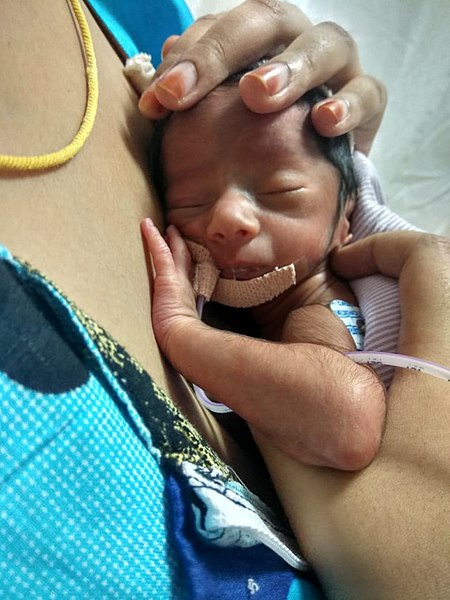The most compelling question in favor of abortion is, “What about to save the life of the mother?”
The answer is straightforward, and fundamentally agrees with the pro-choice position, only minus the intentional-killing-of-the-baby part: If the mother’s life is truly in danger, then delivering the baby early (even before viability), followed by palliative and/or life-saving care for the baby, is a possible moral option.
Abortion is not necessary.
The reality of caring for the baby after delivery, rather than discarding it like medical waste, is a natural feedback mechanism for answering the questions that come into play:
- Just how much danger is the mother in?
- Is it possible to wait any longer before delivery?
- Does the mother have a chance of saving the baby at all? If so, how does she think it is best to proceed in this particular and intensely difficult situation?
On this last point, for example, in the case of ectopic pregnancy, it is usually the case that the baby has no chance of survival, but the danger to the mother is grave. This is one of the rare cases where saving the life of the mother is a legitimate reason to remove the baby long before viability. It is a fairly clear decision, ethically and medically, as these things go.
In contrast, a mother who, say, is diagnosed with a serious condition at 18 weeks, but with a varying set of prognoses based on how long she puts off treatment, will have to weigh many factors in deciding from week to week (or day to day, hour to hour) whether now is the time to deliver or if waiting just a little longer to give the baby more time to grow would be a prudent course of action, even though doing so increases the risk to herself.
This is an example where (depending on the circumstances) a variety of possible courses of action could all be moral, from delivering at 18 weeks even though it’s virtually impossible the baby will survive to prolonging the pregnancy indefinitely despite the risks to the mother. In all cases, delivery does not require directly killing the baby; after delivery, the baby should always receive palliative care, as well as life-saving care if possible.
***
These are tragic situations. When the mother’s life is truly in danger, there are no magic endings that can take away the reality that she is at grave risk if she continues the pregnancy. But that reality does not mean she must resort to directly killing her child. It is cruel for doctors to pressure her to abort rather than exploring every possible avenue for early delivery without direct killing. When you are facing a medical nightmare, the last thing you want as a parent is for your child’s last moments to be violent and painful.
***
While much of the pro-abortion rhetoric on this issue is disingenuous, pro-life legislation should legitimately include protections for mothers and physicians in the difficult position of having to treat a life-threatening condition during pregnancy.
This does not mean that abortion is needed. It does mean that doctors and mothers should be protected from prosecution in the event of:
- Early delivery, even before viability, to save the life of the mother.
- D&C, misoprostol, or other interventions often associated with abortion, but which are sometimes necessary treatments after miscarriage as well.
- Other legitimate interventions to protect the life of the mother that are not intended to directly cause the death of the baby, even if they are likely to result in the baby’s death.
Legislation can specify that a birth certificate be issued, palliative care be documented, and so forth.
***
Pro-lifers may be nervous about this kind of legislation. What if someone uses it as cover for stealth abortions? “Just go get an ‘early delivery’ wink wink” risks becoming the new workaround for abortion.
Well, that’s a risk. It’s also a practice that’s relatively easy to detect on investigation, if a physician is repeatedly fabricating medical documentation to justify ‘early delivery’ in otherwise healthy mothers.
A good law will protect physicians and patients who have to make emergency decisions with limited information, including the reality that there will sometimes be one-off situations where the medical team may have to make a difficult judgment call in a rare scenario.
Most of the time, though, the cases where premature delivery is necessary to save the life of the mother are fairly well-known situations that are easily attested to by a quick records-review if there be any doubt. As with any other area of medicine, a single incident is quite different from a repeated pattern of shady practice, and the regulatory framework should recognize that.
A well-crafted law will rightly deter someone from running a tacit abortion mill, but will leave reputable physicians confident they can provide lifesaving care without fear.

Photo of a baby receiving “Kangaroo care” via Wikimedia, CC 4.0.












